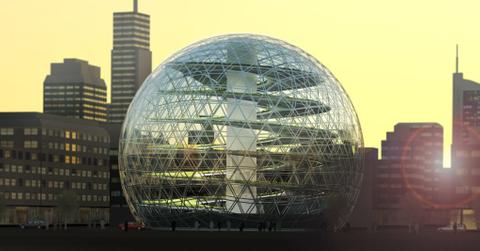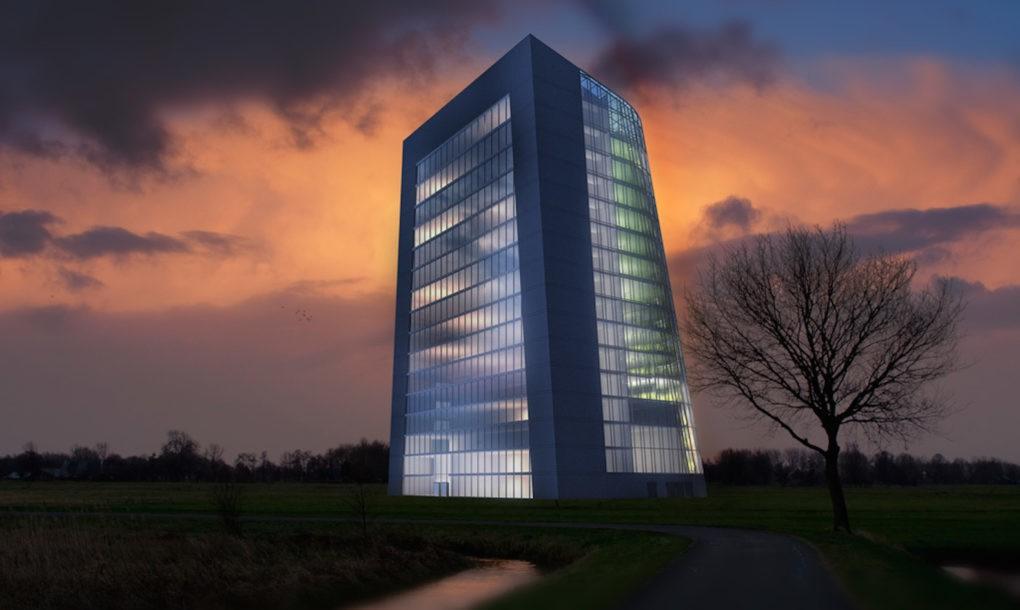Skyscraper Farms Could Be The Answer To The Global Food Crisis
Swedish company Plantagon has developed plans for "plantscrapers," massive vertical greenhouses meant for growing large-scale organic farms in cities, using less energy and and a smaller carbon footprint than the way we grow food now.
Updated May 22 2019, 12:05 a.m. ET
Mainstream agricultural practices have a few major problems in need of innovative solutions. For one, industrial farming practices are hard on the environment. Farms emitted 6 billion tons of greenhouse gases in 2011, or about 13 percent of total global emissions. That makes the agricultural sector the world’s second-largest emitter, after the energy sector. Additionally, 38 percent of the world’s total land area was used for agriculture in 2007 and agriculture is responsible for over 70 percent of global freshwater consumption.
On top of that, the way we grow our food now is not sustainable to feed a growing global population, which is expected to reach 10 billion by 2050. We'd have to use more land, more environmentally harmful farming practices and ship more food across continents and the globe, particularly to reach people in concentrated urban centers. In short, it's not realistic. And facing this fact, we have to come up with better solutions.
Swedish company Plantagon believes they may have found an answer. The company has developed plans for "plantscrapers," massive vertical greenhouses meant for growing large-scale organic farms in cities, using less energy and and a smaller carbon footprint than the way we grow food now.
The "plantscraper" is exactly what it sounds like: a futuristic-looking glass skyscraper filled with an indoor farm and some office space for the workers. After years of research and development, Plantagon is now working to make its first prototype a reality: the company is currently crowdsourcing funds to construct a 16-story building called The World Food Building in Linköping, Sweden, which would serve as an international model for industrial urban farming.
The prototype—and all subsequent plantscrapers—would use Plantagon-patented technology to produce 500 metric tons of food every year in a climate-controlled environment. Half the energy used in food production would be recycled and used to heat the floors in the office portion of the building. Plantagon estimates that it could save 1,000 metric tons of carbon dioxide emissions and 50 million liters of water compared to traditional farming methods.
Urban farming has long been looked to as a potential solution to our impending global food crisis. But until now, urban farming has been on a much smaller and more localized scale. Plantagon wants to change that.
"Our vertical farming technology is a solution to the food crisis caused by our human population growing so rapidly," the company said in a press release. "We are growing, the earth is not and vertical farming will make the difference."

